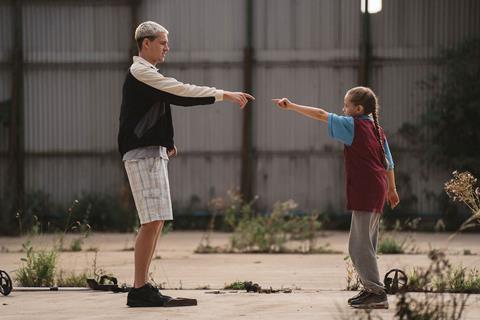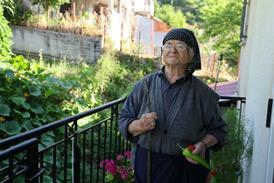
The mood was celebratory at Park City in January. The festival was back on, in person; the online component that Sundance had assembled so professionally during lockdown was still up and running — later than the live screenings, but a top-class service nonetheless and true added value. And before too long, the deals kicked in: Fair Play was the first under the hammer, followed quickly by Theater Camp, Flora And Son, Passages, A Little Prayer et al. So back slaps all round.
Not every film goes into Sundance unrepresented, so the deals do not reflect the quality of the spread — US dramatic grand jury prize winner A Thousand And One was already with Focus Features, for example, while A24 had rights to the best-reviewed film of the festival, Celine Song’s Past Lives, which now goes on to compete in Berlin.
The other festival sensation, Beyond Utopia, went into Sundance unrepresented, however, and came out the same way. Its scathing depiction of North Korea seems, at least as of early February, too hot to handle. It did win the audience prize in the US documentary section so is unlikely to be without a sales agent for long.
Likewise, the fate of independent cinema is not any clearer coming out of Sundance than it was going in. The deals made were for solid, dependable fare. The pulpily enjoyable Fair Play was bought by a streamer and will play well on a streamer and, in fact, could have been made by that very same streamer (Netflix).
Apple went for the latest John Carney musical Flora And Son, which is, again, a safe suit for that service. You know what you’re getting when it comes to his films.
Passages, Ira Sachs’ rather risqué little tale of an asshole film director and his two sexual partners, is a perfect fit for Mubi; A Little Prayer, with David Strathairn, is so very Sony. They stepped out of the box, though, to pick up the idiosyncratic The Persian Version, in which a lively American woman of Iranian descent examines what has brought her large Jersey family to their current fractious state of being.
Deals will continue, but if you were to characterise the line-up and the purchasing, it would be as extremely risk averse. The headline figures on $20m pick-ups (Flora And Son, Fair Play) may seem impressive, but they are safe bets given the rising costs of production, the reviews, publicity and built-in audience even if they go direct to streaming. The top audience prize, the festival favourite award, went to Radical, a conventional drama about a teacher working with deprived Mexican children, and remained unsold as of early February. Also awaiting deals are Eileen, William Oldroyd’s lovely, faithful noir, alongside the Cate Blanchett-produced Shayda which looks at the domestic abuse of an Iranian migrant in Australia.
Sundance showed us the market is cautious — and film-makers are responding with cautious films. The burning question is, how much is streamer content affecting audience tastes? What will audiences pay to see at the cinema? And also, what do they expect to see when they turn up?
Spark, courage and craft
The standout performer at the festival was young British cinema — which really delivered. The debut filmmakers had the floor to themselves, and showed what they can do. They brought spark and courage and craft, from Charlotte Regan’s offbeat Scrapper taking home the world cinema dramatic prize, to Ella Glendining’s moving documentary about herself, Is There Anyone Out There?, and Adura Onashile’s Girl.
Polite Society by Nida Manzoor is a fun mother-daughter show, that is Working Title Films at its best. Raine Allen-Miller’s Rye Lane, meanwhile, is an utterly charming love story set in Peckham, south London, that lights the way for where those sorts of romantic comedies should be heading. All female directors, all female-friendly stories and, for the most part, all with female stars (with apologies to Scrapper’s Harris Dickinson and Rye Lane’s David Jonsson). Now that’s what Screen calls Girl Power.

























No comments yet